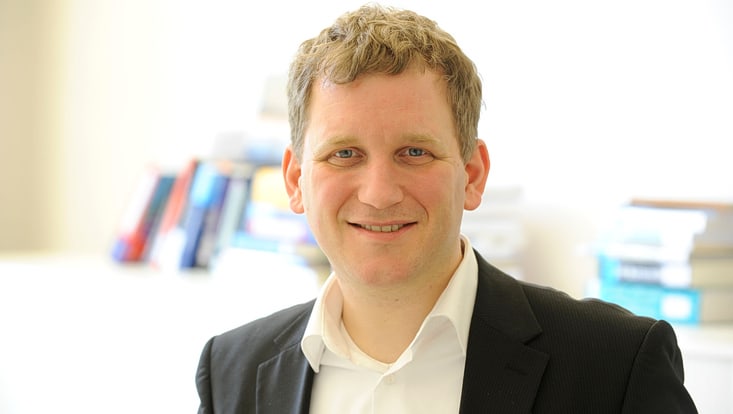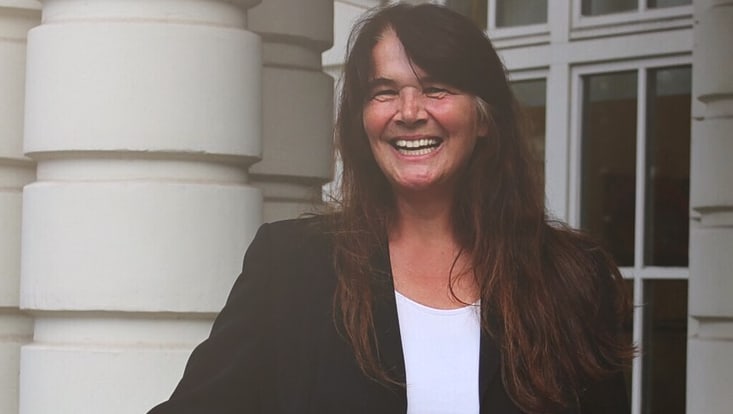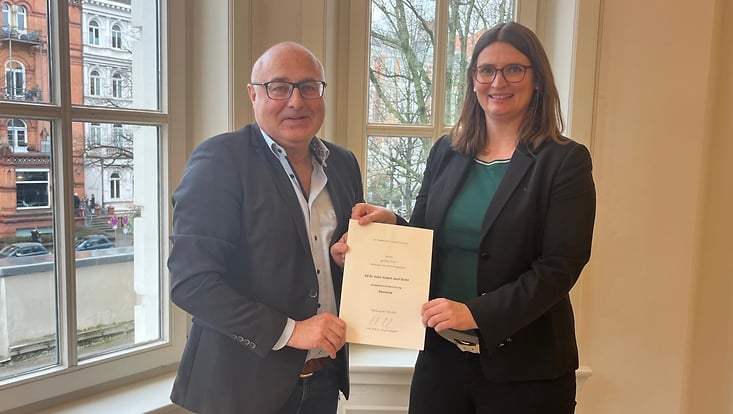Prof. Guido VoigtNew Program Director for the Master of Science in Business Administration
24 September 2025

Photo: Boris Rostami-Rabet
On 1 October, Prof. Guido Voigt, Professor of Logistics and Supply Chain Management, will become the new Program Director for the Master of Science in Business Administration. The former program director of the inter-university degree program in Industrial Engineering (HWI) succeeds Prof. Wolfgang Brüggemann, who is taking over the office of the vice-dean for education in the management board at the University of Hamburg Business School.
Find out more about Prof. Voigt’s tasks and plans.
Business School: What are your responsibilities as Program Director of the Master of Science in Business Administration at the University of Hamburg Business School?
Prof. Guido Voigt: As Program Director, I am responsible for the strategic and organizational management of the master’s program. This includes advising students and working closely with teaching staff and the administration. I also chair the examinations board, which monitors the proper conduct of examinations, applies examination regulations, makes decisions on individual cases, and ensures examination security. Another central area of responsibility is the preparation and monitoring of accreditation procedures in order to ensure the quality and topicality of the degree program as well as compliance with high standards.
To what extent does your experience as program director of the inter-university degree program in Industrial Engineering and Management (HWI) help you in your new task?
The tasks are very similar in both functions, especially in the area of the examinations board. There they include ensuring compliance with examination regulations as well as being responsible for organizing and deciding on examination matters. This experience is of great value to the management of the master’s program and enables a smooth transition to the new role. In addition, best practices in dealing with faculty committees and accreditation procedures are transferable.
What are your overarching concerns and goals for the further development of the degree program?
It is particularly important to me to offer our students both excellent methodological training and a close connection to current research and practical requirements. The focus is on maintaining flexible options and promoting interdisciplinary skills, as well as the internationalization of our program.
What are you most looking forward to in your new position?
I am looking forward to working with a dedicated team and motivated students to further develop the degree program in a future-oriented manner. What I find particularly exciting is the direct exchange with the students and the opportunity to contribute innovative ideas from research and international collaborations.
What advantages does the Master of Science in Business Administration at the University of Hamburg Business School offer, and which target group would you like to address in particular?
Our Master of Science in Business Administration offers an impressive range of specializations, methodological depth, and international orientation. The program is aimed in particular at performance-and research-oriented students with a bachelor’s degree in economics or a related field who want to prepare themselves for demanding management tasks or an academic career.
How do you assess the demand for English-language degree programs in business administration, and to what extent do you align your program with this?
The demand for English-language courses is growing continuously, both due to the internationalization of the job market and the strong interest of international students. We therefore offer a separate “English Track” in the Master of Science in Business Administration, which can be completed entirely in English. This allows students to design their entire curriculum in English and prepare specifically for leadership tasks in a global context without having to forego the methodical and research-oriented depth of the program. The international and diverse composition of the student body also results in a lively campus, providing intercultural experiences and far-reaching contacts that are of great value for later professional life and global networks. Students benefit in the long term from different perspectives in their studies and an international alumni network that promotes exchange and cooperation across national borders.
What are your memories of being a student?
My studies and doctorate at Otto von Guericke University in Magdeburg were characterized by committed teachers and the opportunity to set my own priorities. The open atmosphere and the exchange in an interdisciplinary context, especially in economics, had a significant influence on my future career.


